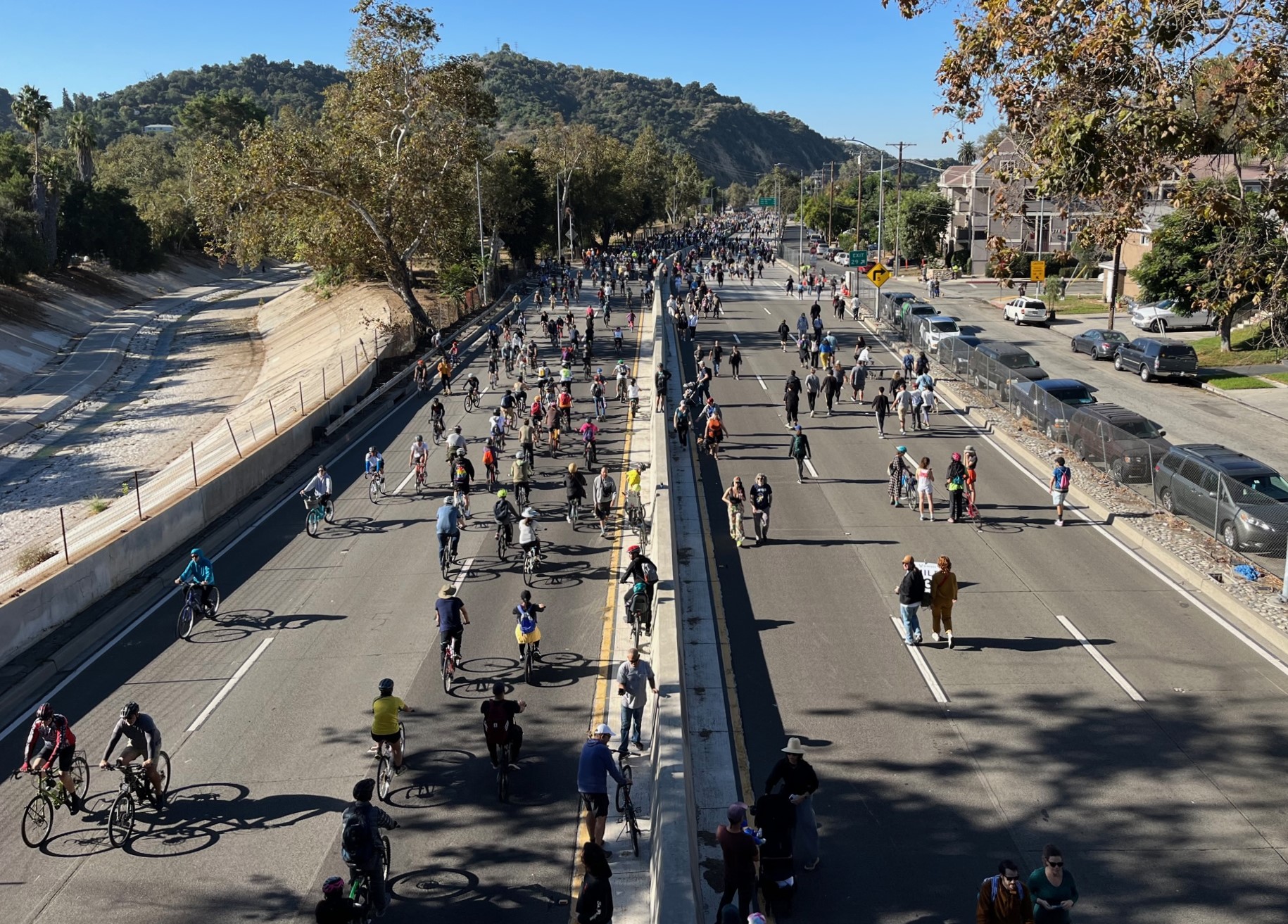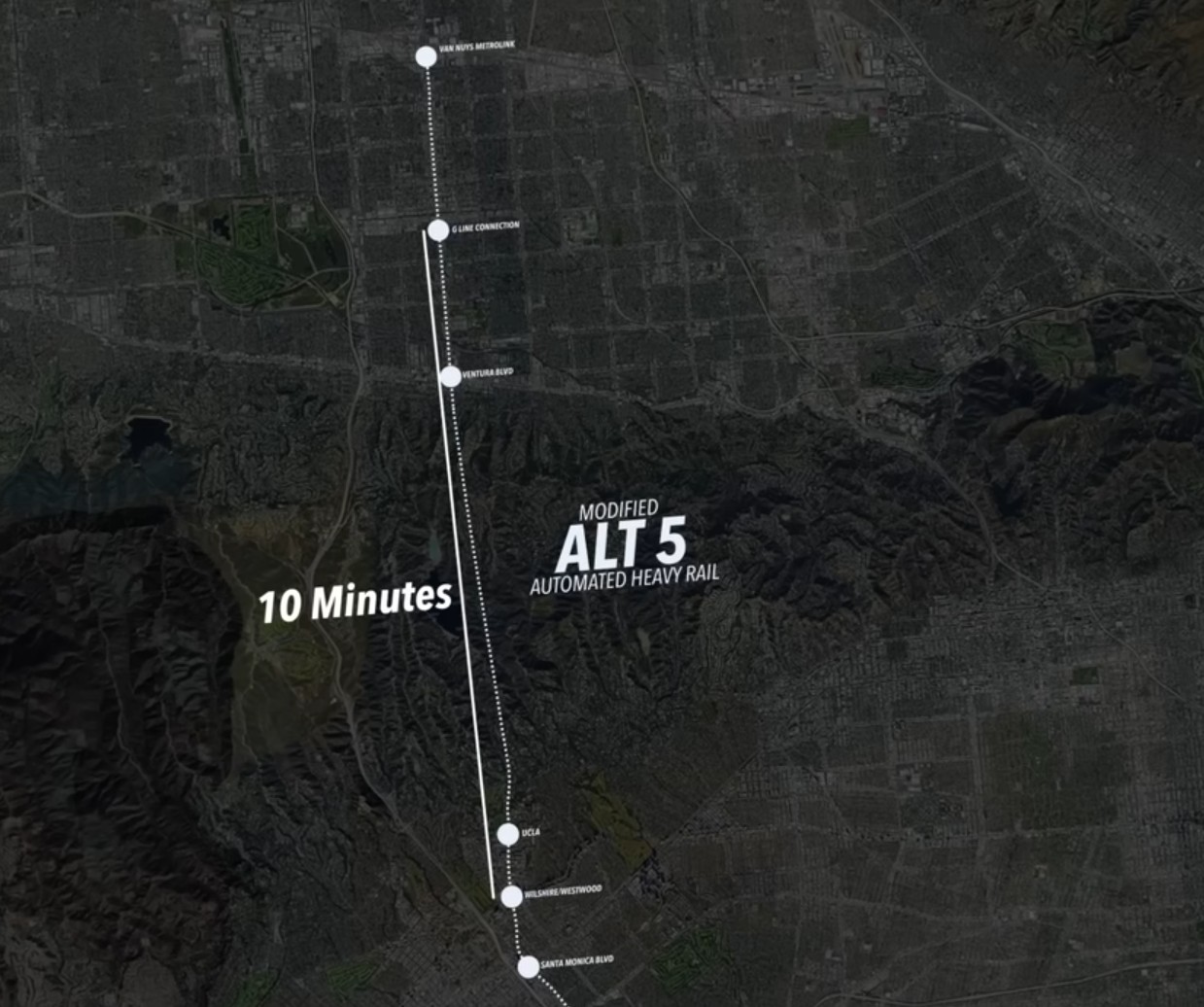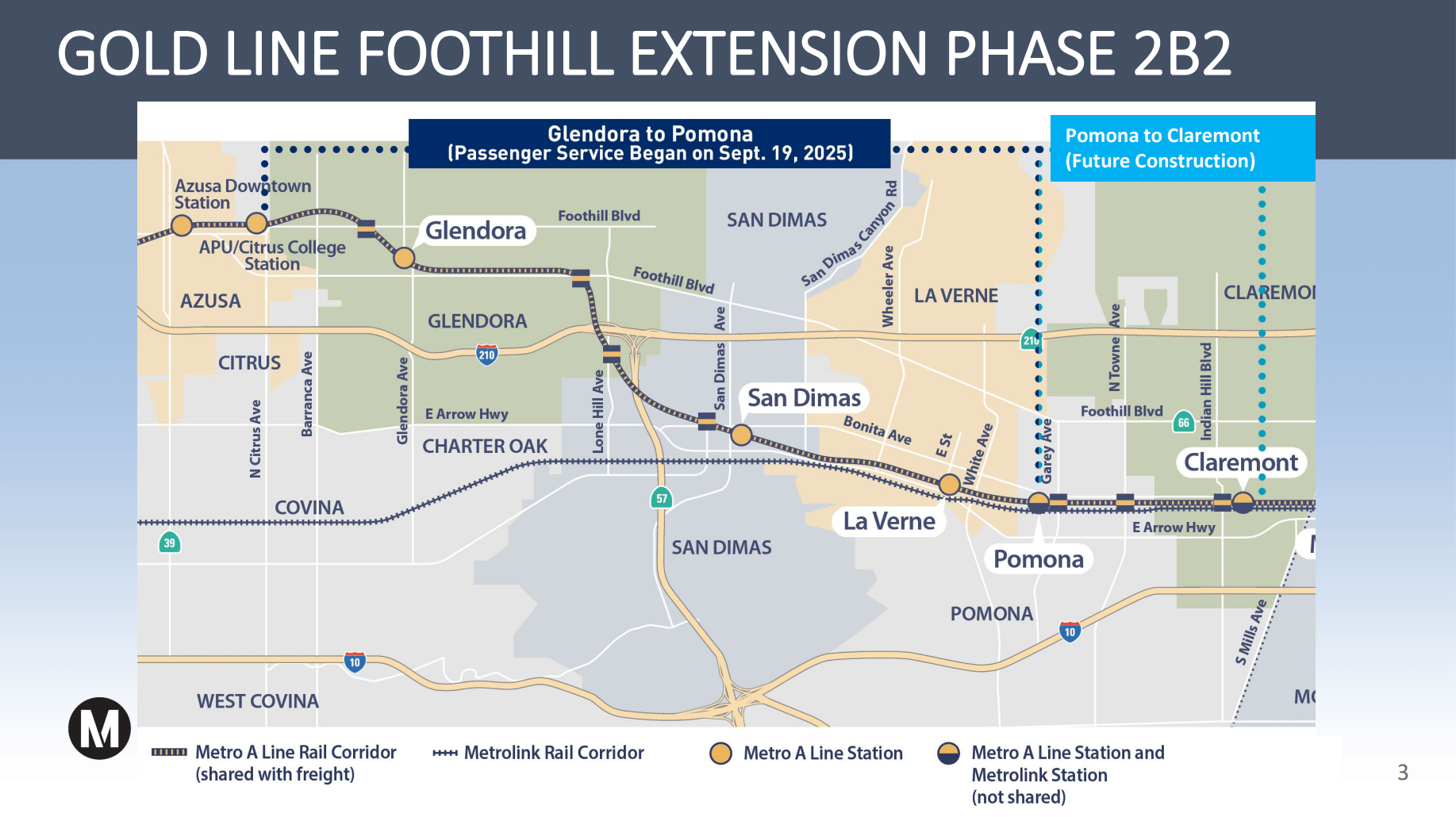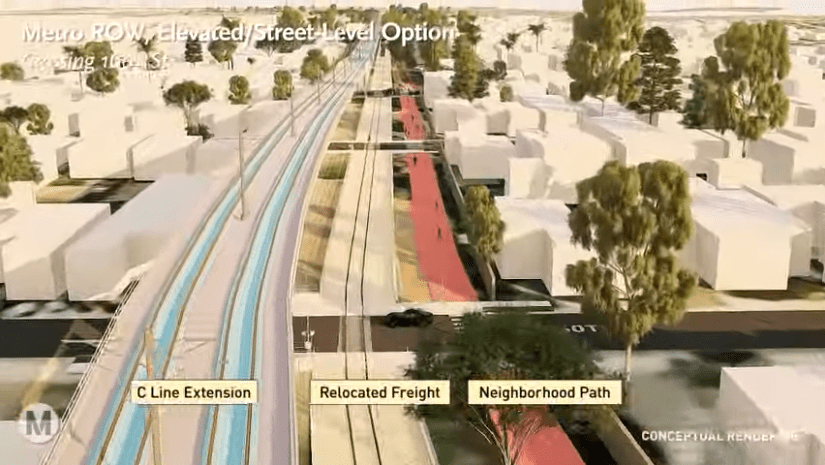This week, Metro Board committees approved a handful of noteworthy items. These approvals are preliminary and will require final approval at the full board meeting on December 4.
Dodgers Stadium Gondola

In a split vote, the board's Executive Management Committee re-approved plans for an aerial gondola connecting Dodgers Stadium to Union Station [staff report]. The official name of the project is L.A. Aerial Rapid Transit (LAART).
The board already approved the LAART environmental impact report (EIR) last February. The project subsequently lost a legal challenge, requiring a new supplemental EIR. That SEIR was approved yesterday. If approved by the full Metro board next month, the project still requires approvals from L.A. City, Caltrans, and State Parks.
What's perhaps most interesting about the gondola vote is that it sheds a bit of light on an apparent split between Mayor Karen Bass and the city's most progressive Councilmember Eunisses Hernandez. The gondola would be located in Council District 1, represented by Hernandez. Councilmember Hernandez, who arguably has more control over projects in her district than the mayor, strongly opposes the gondola.
Last week Hernandez shepherded council approval of a resolution (Council File 25-1295) making the city's official stance opposing the gondola, and requesting Metro not approve the SEIR. That council resolution is still awaiting mayoral approval (due by November 24).
At the committee meeting yesterday, Mayor Bass voted in favor of approving the gondola SEIR. She spoke only very briefly (21 seconds - the L.A. Times noted), essentially stating that this approval, one of many, was "nothing more" than certifying environmental clearance.
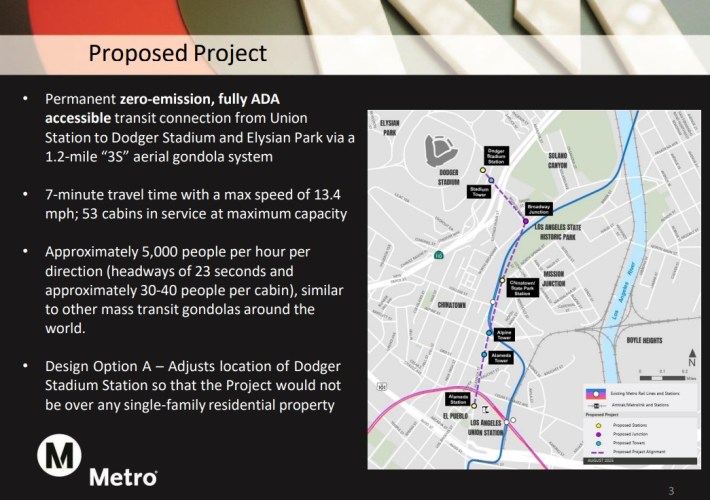
Open Streets Funding
Metro's Open Streets grant program is the largest source of funding for open streets events - think CicLAvia - throughout L.A. County. When the Metro board requested that open streets events celebrate the 2026 World Cup and 2028 Olympics, and Paralympics, Metro staff proposed to zero-out non-mega-event-related events for the next 3-4 years [staff report]. Metro is proposing, for instance, no open streets grant funding for all of 2027.
Open streets hosts and supporters rallied to support popular regular open streets events.
Metro Boardmember and County Supervisor Lindsey Horvath responded by moving to supplement the grant program with an additional $1 million. That motion was approved by the Planning and Programming Committee.
East San Fernando Valley Light Rail
A Metro committee approved a staff recommendation to slightly shorten Metro's East San Fernando Valley Rail project, essentially eliminating plans for a second phase that would have gone from Pacoima to the city of San Fernando.
Metro's ESFV project is in the early construction stage of building light rail in the center of Van Nuys Boulevard.
The initial ESFV phase will extend about 6.5 miles from the Metro G (Orange) Line to San Fernando Road. From there, the light rail line had been planned to extend northwest about 2.5 miles along San Fernando Road, where it would have shared the right-of-way with parallel railroad tracks that serve Metrolink.
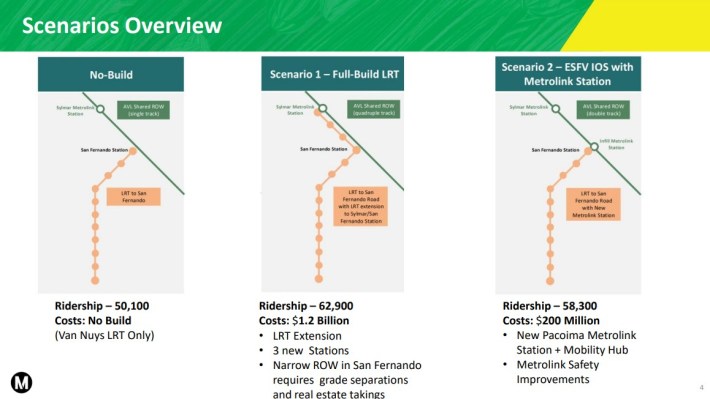
But that rail right-of-way starts to get complicated and crowded (and more frequent rail would mean more rail crossing gates delaying drivers), so Metro studied alternatives. Metro's study recommended ending ESFV light rail at San Fernando Road, and adding a new infill Metrolink Station there.
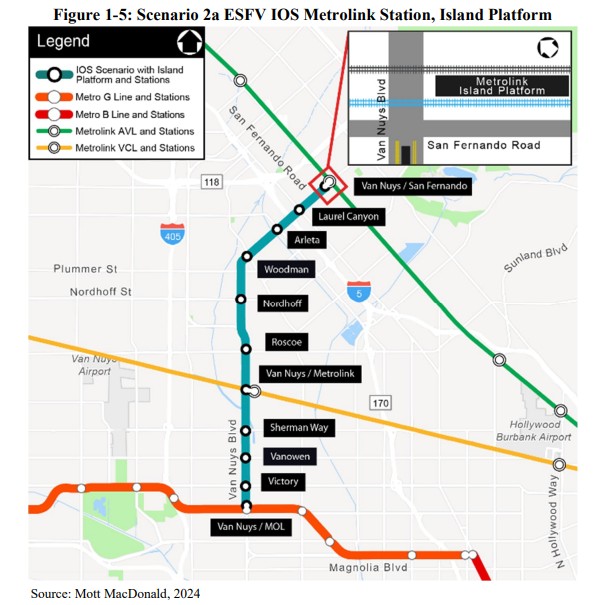

Bus Electrification
Metro has been slowly, hesitatingly, shifting some of its bus fleet to battery-electric buses. Electric bus technology is used all over the world (including on the Metro G Line); it has a lot of upsides: minimal pollution (including minimal climate harm), quiet, and more. But generally electric buses don't quite perform as well as fossil fuel buses - which, in Metro's case, run on compressed natural gas.
Metro Boardmember and L.A. City Councilmember Katy Yaroslavsky has been pushing to keep Metro electrification on track. At Yaroslavsky's prodding, the agency is now reporting quarterly on bus electrification.
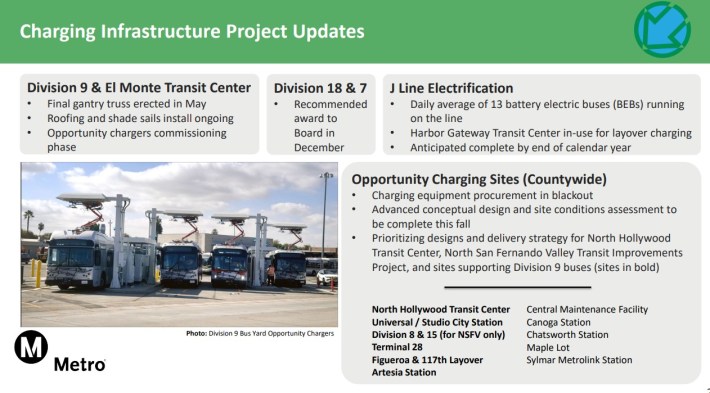
This month's electrification status report [staff report, presentation] notes that the J Line will (finally) be all electric by the end of this calendar year. In 2017, the Metro Board approved two pilot all-electric Bus Rapid Transit lines: the G Line and J Line (at that time, the Orange and Silver Lines respectively). The J Line had initially been scheduled to be all electric in 2021.

Board committees approved funding for electric buses this month. The Operations Committee approved the purchase of 80 new electric buses [staff report]. The Construction Committee approved installing electric bus charging infrastructure at two Metro bus yards [staff report].
